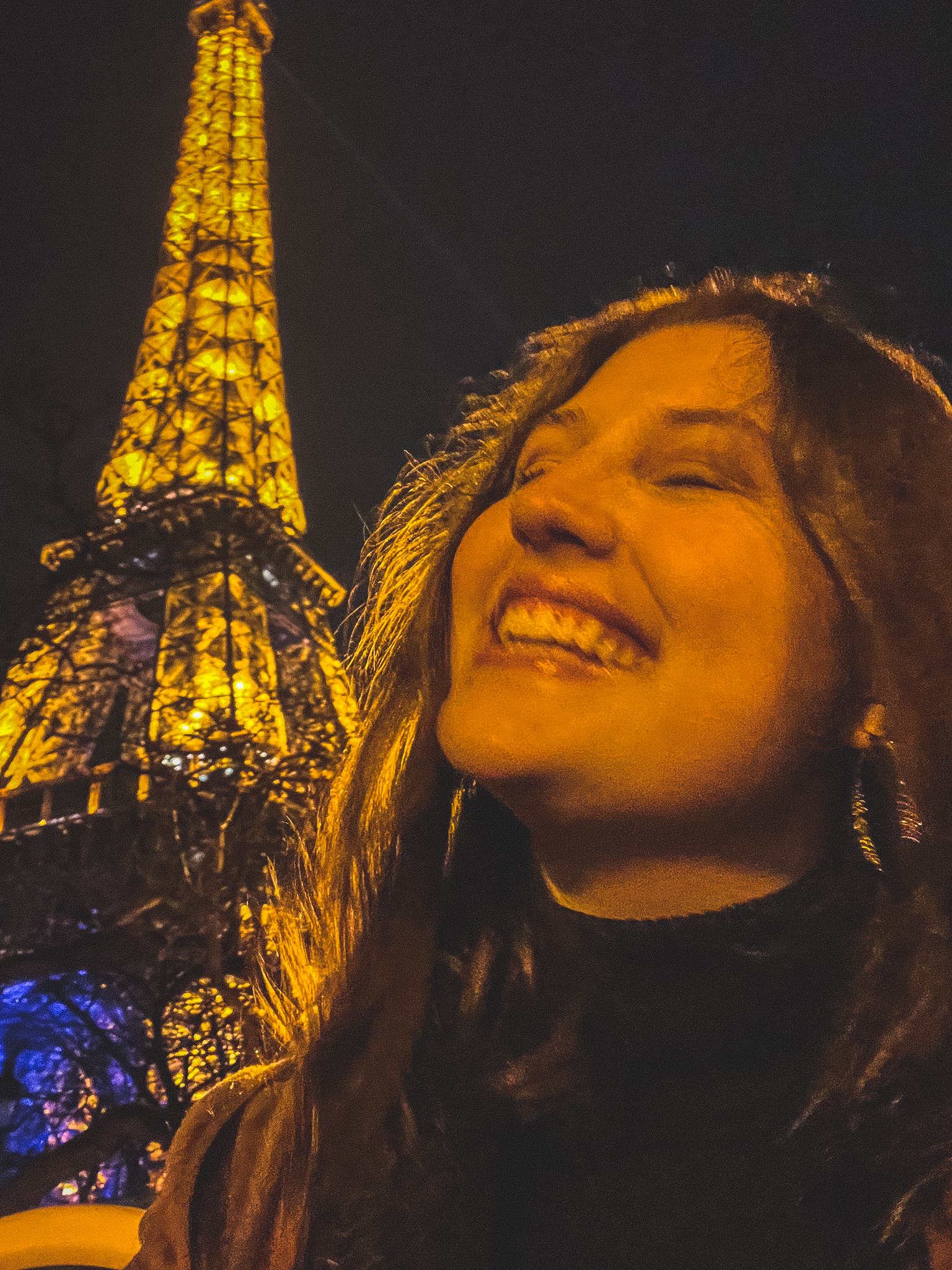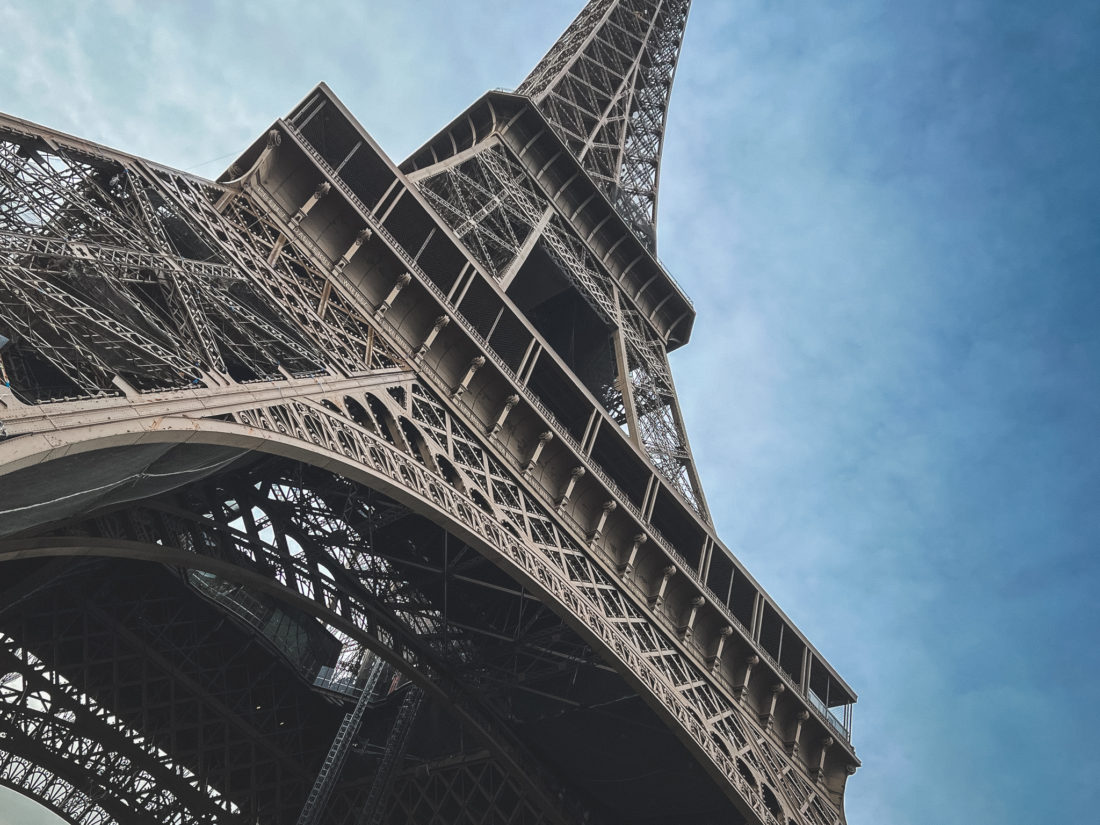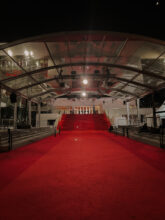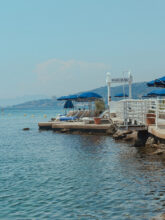It had become a familiar feeling – rolling up the hills of southern Minnesota, climbing the peaks of the bluffs and numbly out of my skin. At the time I wasn’t sure why – or what – was happening to me. Panic attacks weren’t anything I had ever experienced, and suddenly they’d become a consistent part of my life. There were certain things I knew would bring on a too-familiar-tingling loss of self, such as getting into a car and driving out of town, but there were moments where it struck by surprise, causing me even more confusion. In all moments, I tried to hide it from those around me. I didn’t want anyone to know when my heart started beating too fast, when it felt like my soul was begging to leave my body, when my mind grew far away and body numbed itself to everything around me. Feelings of panic would well up like waves in my stomach, and I had no idea how to stop them, but I grew very good at participating in society without clueing anyone in to how I was feeling.
I recall one particular moment, sitting in a coffee shop I’d been to a thousand times, talking with my parents, who had come to visit me. A panic attack hit me out of nowhere, my heart beginning to race, daring every cell to race along with it until a prickly feeling extended down my arms and into my stomach, which immediately began to flip. Then, just as quickly as my heart had begun racing, it slowed down, just like everything else around me. The sounds of the coffee shop sounded muffled, and everything blurred around me. I remember focusing on a large painting of a fish, straight ahead of me. The green and red paints started to swirl together ahead of me, and despite the fact that I felt like I was no longer present, some part of my subconscious knew when I was supposed to emit verbal cues that I was paying attention. “Uh-huh,” “wow,” “nice,” I said, every now and then. No one seemed to notice that I wasn’t there anymore.
I didn’t know it was anxiety at first, and like many people who experience anxiety, when the panic attacks struck, I thought I was dying. My racing heart convinced me that there was something wrong with me, which only increased my feelings of anxiety. I didn’t understand at the time why I’d begun to experience this anxiety, and I didn’t know how to manage it. I only knew how to hide it from other people. There were many moments where it took me by surprise, but consistently, any time I got into a friend’s car to leave Winona, where I was attending college, I would have a panic attack. During the drive, we’d launch up and down the long-stretching hills along the bluffs, and the up-and-down motion would mimic the panic that covered me like a suffocating plastic bag.
The metallic echoes of car doors slamming shut became the cue to brace myself for the anxiety that would undoubtedly strike. I became afraid of getting into vehicles at all, and I started wondering when I would have panic attacks while simply driving around town instead of just out of town. I began to ask myself how I would survive the three-hour drives home over holiday breaks if I couldn’t manage driving out of Winona to a town twenty minutes away. I began to convince myself that my life was over before it had begun.
My entire life I had dreamed of traveling. I grew up in a small town, and ever since I can remember, I was absolutely hungry for the rest of the world. I knew there was much more beyond what I’d been raised in, and I wanted to see and experience it all. I wasn’t content staying in only one corner of the world. It was more than a desire, it was something ingrained in my bones – it felt like a calling.
And for as long as I can remember – France, and specifically Paris, was at the forefront of that calling. As a kid, I was obsessed, in a way that would have been cheesy if I weren’t a child. I was eight-years old, walking around with a necklace that had a photo of the Eiffel Tower in it, because I dreamed of seeing the monument in person one day. There was an antique shop in a nearby town that sold French soaps, and I begged my mom to buy me a green-apple scented soap, that I can smell even now, simply because the label claimed it was made in France.
I was fascinated by the French language, and even though there weren’t opportunities for me to learn French in the rural area I grew up in, I was determined to learn it. My parents bought me books and CDs (yes, CDs – even a handful of cassette tapes, if you can believe it) meant for folks to teach themselves French – mainly basic conversational phrases or “survival” French for people who were preparing to visit France. It didn’t matter to third grade me, however, and I spent countless hours reading through those books, listening to the CDs, writing and rewriting phrases to help them stick in my mind, and picking phrases of the week to try to help myself remember the words. However, as a third grader, I wasn’t super equipped to teach myself a foreign language all by myself, and eventually my commitment to teaching myself wavered. My dream of visiting Paris, however, never did.
Until I was 20-years old, fighting off panic attacks while walking down the street and driving out of town with my friends. My concern about making the three-hour drive home turned into a concern that I wouldn’t be able to manage a plane ride – if I couldn’t survive a simple car ride, what chance did I have climbing altitude and flying away? Suddenly, my dreams of travel seemed like an impossibility. I would never wander the streets of Paris. I would never visit Shakespeare and Company. Again and again, my mind revisited the feeling of loss that I would never see the Eiffel Tower. I truly felt that my life was over. This calling I had felt my entire life would never be answered.
Friends I had grown close with became candid about their own anxieties, and suddenly I had a word for it. We were able to talk about the things we were experiencing, and I felt less alone. I stopped hiding from my anxiety, and started facing it. I realized the source of my anxiety, and I started writing poetry about it, one of the things I most credit to my ability to manage my anxiety to this day. I had things I needed to work out, and writing about them helped me reflect and move forward bit by bit. I also learned methods to ground myself during moments of anxiety – the most helpful being a countdown from 5. It goes like this:
5) Identify five things around you that you can see. I like to pick things that are the most unique in my vicinity. A brightly colored tapestry, a carpet with a complex design, a metallic coffee cup. Identifying objects that standout and thinking about why they are unique is a great way to really bring yourself back to reality.
4) Identify four things around you that you can touch. I like to pick things with different textures or surfaces, again, to pull myself back to the present.
3) Identify three things you can hear. If I’m talking with a loved one, I try to focus on the comfort of their voice, to remind me of the people who love and support me who are nearby.
2) Identify two things you can smell. This can be anything, but preferably something pleasant. 🙂
1) Identify 1 thing you can taste. This one is a bit more challenging, so during the times of my peak anxiety, I began carrying around mints in my purse, which I found to be a great way to keep myself present, as well.
For a long time, using the grounding method, writing and acknowledging my feelings, and reminding myself that it was simply anxiety was enough, and I was not only able to manage my anxiety, but I returned to who I was. Getting into cars no longer intimidated me, and traveling – including in planes – didn’t make me hesitate.
But while I’d acknowledged the source of my anxiety and written about it, I hadn’t truly faced it in the way I needed to. I had pushed a lot of myself down, neglected a lot of myself, and that’s not something that’s sustainable. Eventually, those parts of you find a way of getting out, and they resurfaced as intense anxiety in late 2019.
About a year prior, I’d started having increased heart palpitations. After a thorough visit with my doctor, she assured me it was just anxiety. We talked about my management methods, and she suggested I cut down on drinking coffee, which I did. But a year later, it was worse. Not only did I begin to have heart palpitations, I started to feel like I couldn’t breathe.
It felt impossible to take in deep breaths, and I became hyper-focused on it. I worried there was something wrong with me, and when the panic attacks would hit, I worried that it was the end. I couldn’t take in enough air, and it felt like each shallow breath could be my last. Several times I almost brought myself to the emergency room, fearing there was something wrong with my lungs, but I didn’t think I would even make it to the hospital. Typically, I found a way to calm myself down, but eventually I hit my breaking point. I was set to go to a football game with my brother and parents, and while at my parents’ house, a panic attack struck. I was alone in my room, and I began to feel like I couldn’t breathe. The feeling erupted into hyperventilation, and I didn’t think I could even get myself to go find help. I ended up crouched on the floor, trying to focus on my breathing. Eventually, the feeling lulled and numbed until it was gone, and I took a few moments to sit in the calm after the storm. Then I told my parents I didn’t think I could go to the football game, and they should go without me. It was the first time my anxiety had truly prevented me from doing something – normally I faked it until I made it. But this time, I couldn’t. I needed to walk it off. I had discovered that the only sure way of bringing my breath back to me was to go for a walk – something about the movement helped calm me down and bring me back to reality. So instead of spending time with my family, I went for a walk alone.
It troubled me how bad my anxiety had gotten, and I knew I couldn’t live my life like that anymore – pretending to be here when I was not. I didn’t want to feel paralyzed like I did in my college days, and I didn’t want my anxiety to get even worse. So I made an appointment with my doctor and told her about what had been going on. She referred me to a therapist, and prescribed me Lexapro and a second medication to take if I ever felt the hyperventilation-I-need-to-go-to-the-emergency-room level of panic attack again. Something about the Lexapro scared me and I spent a full day in my office trying to talk myself into taking it so I could pull myself out of the rut I was in. I felt like a shell of myself, but I was scared of the potential side affects of the medication, and eventually, in tears behind closed doors, I made myself take a dose. I made it a few days before I felt ill, which I’d heard was something that happens to most folks as they begin taking the medication. In my state of being, I couldn’t handle it and decided to pursue therapy as my main mode of treatment, and to return to Lexapro if I felt like I really needed it.
A few months after my inability to breathe plagued my every day, I was in a better place. I was talking with a therapist every other week, which seemed to really help. And then, conveniently, a respiratory-illness plagued the world as a global pandemic. I thought that I would spend each week wondering if my shallow breath was a sign of COVID or just my anxiety resurfacing, and while there certainly were days where that was a question in my mind, for the most part my anxiety stayed away and my ability to breathe remained intact. I was working in healthcare communications, and I had a job to do.
I paused my therapy during the initial lockdown, but eventually went back to it. Facing myself and my past experiences instead of pushing them down, out of sight until they bubbled up in the physical manifestation of my anxiety, was the most impactful thing I did to reduce my anxiety. It took a lot of days and hard conversations, but it feels like rooting out what needs to be removed, making space for what should be – an unparalleled, free sense of joy and self.
I still have days where anxious feelings creep up, but for the most part, I have control over it. Healing isn’t linear journey, and knowing that helps you keep giving yourself much-needed grace along the way. I have taken myself back, and any moments of anxiety are for the most part, small blips on the radar. If you would have told 2015 and 2019 me how I would be now, I wouldn’t have believed it.
And so when I arrived in Paris in December 2021, it didn’t just feel like a much-needed vacation for the first time in nearly two years. It wasn’t just my first time in a new city.
It was reuniting with myself – reviving and remembering a part of me I once thought was gone forever.
The moment I first stood in front of the Eiffel Tower wasn’t just momentous in terms of seeing something I’d always wanted to, or visiting a world-famous site, it was pride in myself. A few years ago, I didn’t think I could survive a three-hour car ride. Now, I had booked a solo trip to France without hesitating. It was my first time flying to Europe, and I’d done it myself. I’d navigated many challenges to get there, but I was confident in my abilities to do so. I didn’t feel anxious, I felt free.
I took the tour to the top of the Eiffel Tower, relishing each moment, and at the end of the evening, I settled into a seat on a large stone platform across from the tower, which leaned against the backdrop of the setting sun. There was a version of me seven years ago who thought I would never stand there, yet there I was. Not an ounce of anxiousness within me, just pride in myself and my ability to move forward. I felt like the strongest version of myself, and I paused for present me to say hello to past me, promise her everything would be okay.
Everything felt like it had come full circle, and I don’t know if I will ever be able to fully put words into what that experience felt like to me.
I do think this photo captures it – a candid I had accidentally taken of myself. This woman is filled with pure joy, and free from what used to keep her held back.

If you’re struggling with anxiety, just know that there are more of your best days ahead. Grounding techniques, mindfulness, meditation, and therapy have all been great tactics for me – I really believe that everyone needs therapy and should try it. Don’t be afraid to get help – whatever mode works best for you – when you need it.
Know that whatever your Eiffel Tower is, you’ll see it one day.
Thanks for tuning in for this week’s post! I’ll be back with more details about my visit to the Eiffel Tower, and the rest of my Paris trip. After all, there is always more adventure ahead.
Click here for more adventures.
Let’s Connect:



